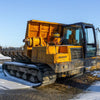Face Masks and KN95: What You Should Know

On 24th July 2020, the UK Government introduced legislation requiring face coverings to be worn in shops. This regulation was extended to other indoor venues on 8th August, and while face coverings are not compulsory for those who work indoors, many businesses are choosing to stock up on masks to ensure that both employees and visitors have access to protective equipment if required during the COVID-19 outbreak.
Face Mask Standards
While the legislation has been brought in to slow the spread of the SARS-CoV-2 virus, it is also introducing new challenges for organisations. One of the biggest challenges today is understanding the various standards and certifications for UK face coverings. The primary issue right now is KN95 masks, which are often mistaken for N95 masks.
Both N95 and KN95 masks filter 95% of airborne 0.3 micron particles. The difference is that N95 is the official US standard (approved for use in the UK), demonstrating that masks have met the stringent requirements laid out by the Centres for Disease Control and the National Institute for Occupational Safety and Health. KN95 masks, on the other hand, are now being provided with ‘emergency authorisation’ status in a bid to meet the growing demand for PPE, which allows them to bypass many of the regular tests.
The result is that many KN95 masks are being manufactured to a very low standard, and are proving to be highly ineffective in the fight against SARS-CoV-2. The situation has become extremely serious across the UK, with the Health and Safety Executive (HSE) urging businesses not to purchase KN95 masks for use by their employees or visitors.
Face Masks for UK Employers
For those businesses operating outside of the healthcare industry that do not deal directly with confirmed COVID-19 patients, or those with suspected cases, there is actually no need to select medical-grade equipment at all. As long as face coverings are made from at least two layers of fabric and feature ear loops or head ties to secure the mask over the nose and mouth, they are helping to reduce viral spread. Washable antibacterial face masks are advised as these masks also provide protection against known bacterial pathogens, and minimise waste, helping to care for the environment.
For those working in close proximity to individuals, such as salon workers, full face visors also offer a suitable alternative provided they are treated with an anti-fog solution.





